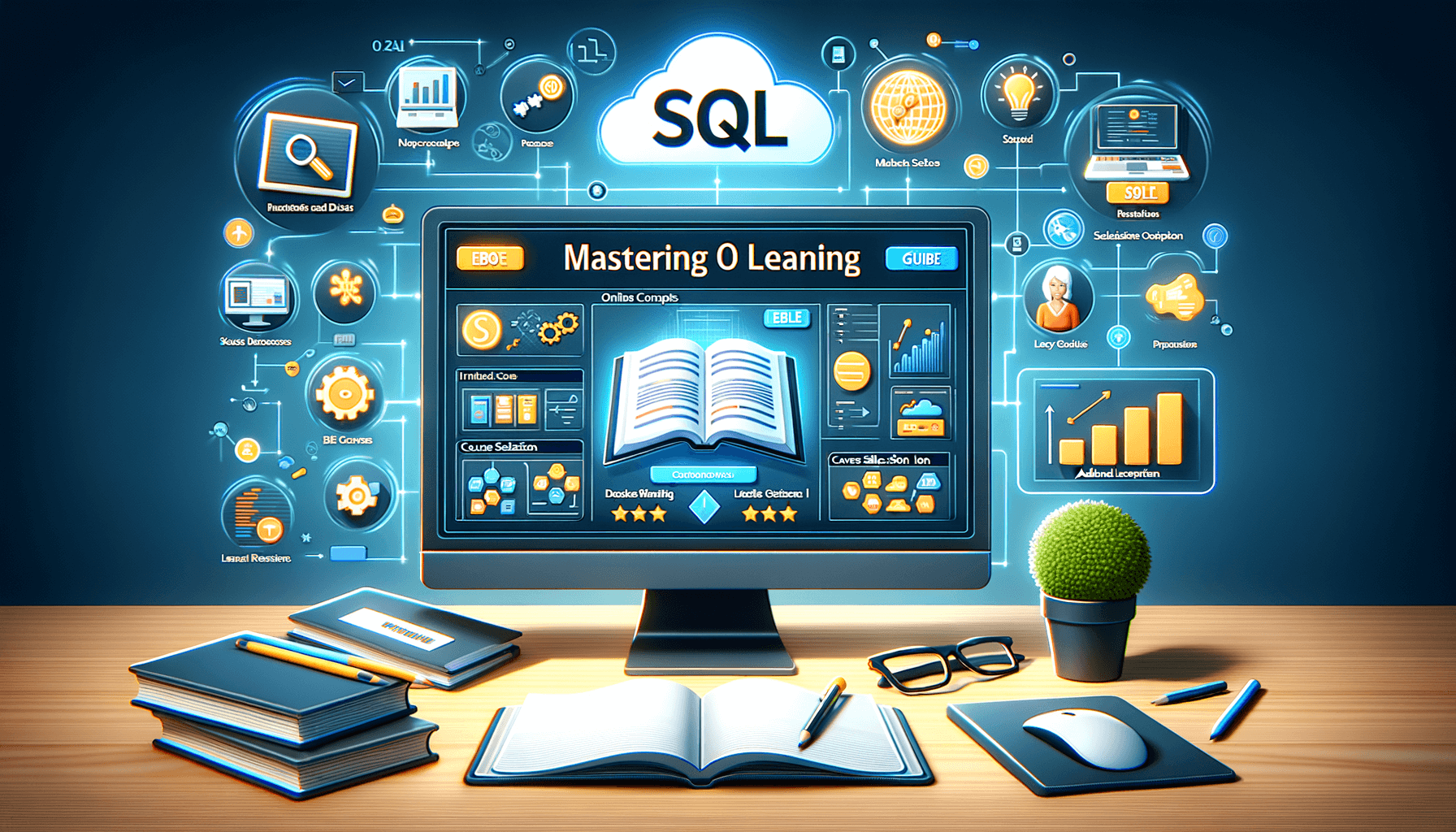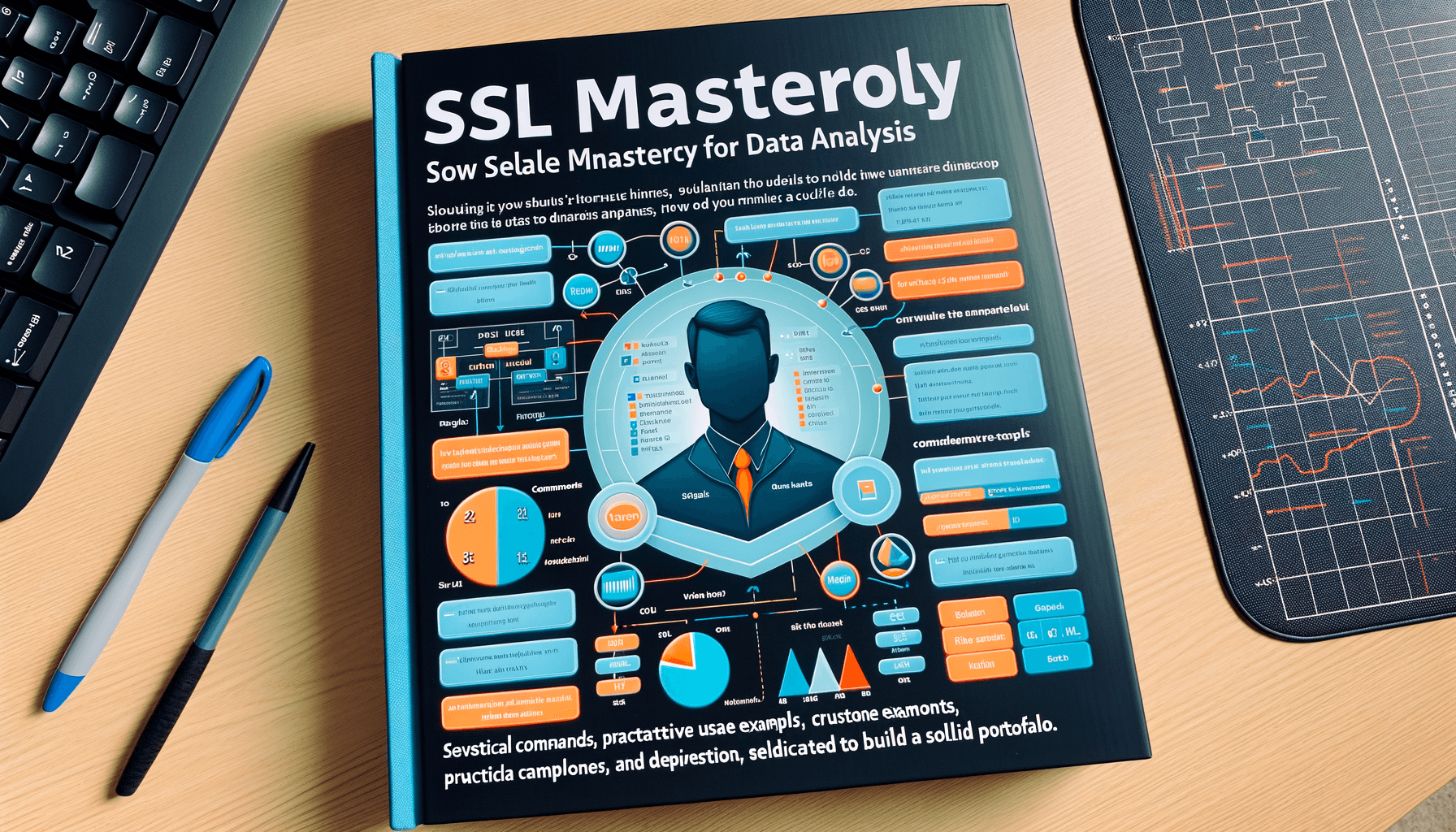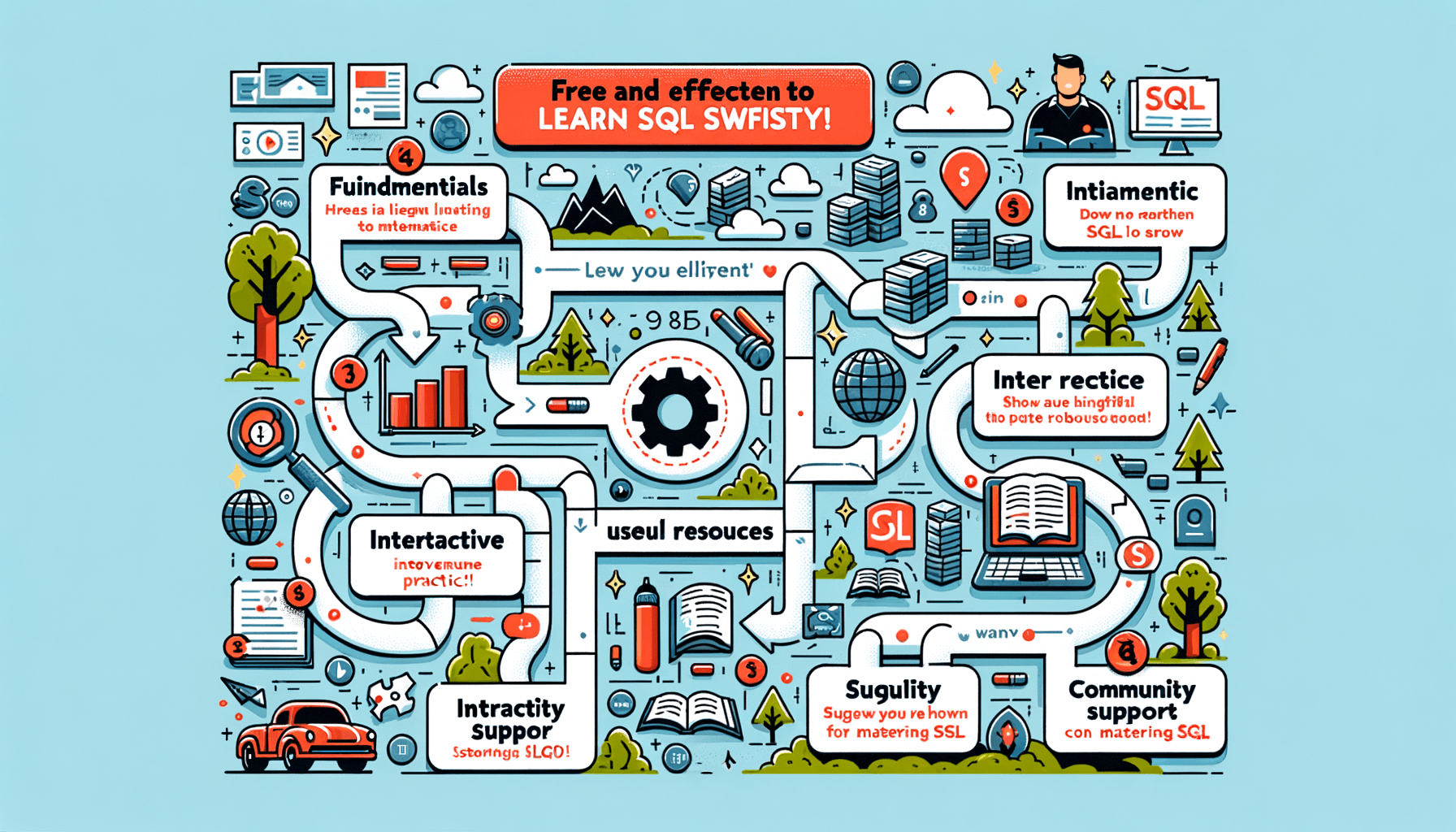A big variety of articles and resources

How to Learn SQL Efficiently Online: A Comprehensive Guide
 Sia Author and Instructor
Learn SQL
Sia Author and Instructor
Learn SQL
9 minute read
Choosing the Right SQL Course
Factors to Consider
When selecting an online SQL course, it's crucial to ensure the course content is up-to-date and taught by reputable instructors. Look for courses that align with your learning style and career objectives. Consider the reputation of the course provider and the structure of the course content to ensure it covers both fundamental and advanced topics.
Top Online Platforms
Platforms like LearnSQL offer a comprehensive range of SQL courses tailored for both beginners and advanced learners. Their courses are interactive, based on real-life scenarios, and do not require any installations, as everything is accessible via a web browser. This platform is highly rated with numerous positive reviews, making it a reliable choice for many learners.
Course Reviews and Feedback
It is essential to consider the experiences of past students before choosing a course. Look for courses with high positive ratings and read through the detailed reviews to gauge the effectiveness of the course. Engaging with course reviews can also provide insights into the practical applications of the course content and the quality of instruction.
Essential SQL Concepts and Queries
Understanding Basic SQL Syntax
Starting from the fundamentals, we explored the prerequisites to set you on the right path. As you progress, the guide takes you through the concepts relevant to each level of expertise. From basic SQL commands and data types to advanced techniques like window functions and performance tuning, you’ll gain a well-rounded understanding of SQL. Understanding how data is stored in a relational database and what a schema entails is essential.
Common SQL Queries
- Understand the basics: Before diving into the complex queries, you need to understand the basic concepts of SQL, such as tables, columns, rows, and relationships between tables.
- Choose a database: Select a database management system (DBMS) and become familiar with it. Some popular ones include MySQL, PostgreSQL, Microsoft SQL Server, and Oracle. They are all very similar and MySQL Community edition and PostgreSQL are free. I recommend starting with one of those two.
Advanced SQL Techniques
Now equipped with a solid foundation in basic SQL, continue your learning journey, applying your newfound skills to real-world scenarios. As you progress, remember that practice and exploration are key to mastering this versatile language. Embrace the possibilities that SQL offers in unlocking the vast potential of data-driven opportunities!
- Aggregate Functions: Learn how to use essential functions like MIN, MAX, AVERAGE, SUM, and COUNT for data summarization.
- Order of Execution: While not mandatory, understanding the order of execution is beneficial for comprehending complex queries.
- Subqueries: Master the art of writing subqueries, which are invaluable for fetching data from multiple nested sources.
- CTE (Common Table Expression) or WITH Clause: Harness the potential of CTEs to simplify complex queries and improve readability.
Complementary Learning Resources
Books and E-books
Books and e-books serve as invaluable resources for deepening your understanding of SQL. They often provide comprehensive explanations and detailed examples that are not always covered in online courses. Consider using books as a reference guide to clarify concepts and enhance your learning experience.
Interactive Tools and Forums
Interactive tools and forums are essential for practical learning and problem-solving. Platforms like W3Schools, DataCamp, StrataScratch, LeetCode, and DataLemur offer a variety of exercises that cater to different skill levels. Engage with these platforms to practice SQL queries and receive feedback from a community of learners.
Practice Exercises and Solutions
To solidify your SQL skills, it's crucial to apply what you've learned through practice exercises. Here's a list of recommended platforms where you can find diverse SQL challenges:
- W3Schools
- DataCamp
- StrataScratch
- LeetCode
- DataLemur
These platforms provide structured problems that simulate real-world scenarios, helping you to apply SQL effectively in various contexts.
Setting Up a Learning Schedule
Time Management Tips
To effectively learn SQL, managing your time efficiently is crucial. Create a dedicated study schedule that aligns with your daily routine to ensure consistent progress without overwhelming yourself.
Setting Realistic Goals
Start by setting achievable goals that motivate you to progress. For instance, aim to understand basic SQL commands within the first week. This approach helps maintain a clear direction and sense of accomplishment as you advance.
Consistency and Routine
Establishing a routine is essential for long-term success. Dedicate specific times of the day for SQL practice and stick to them. Consistency not only builds habit but also enhances your learning efficiency over time.
Practical Application of SQL Skills
Real-world SQL Projects
Engaging in real-world SQL projects is crucial for applying what you've learned in a practical setting. Whether you're a student or a professional, try to incorporate SQL into your projects or workplace analyses. This hands-on experience not only enhances your skills but also helps in making data-backed decisions and presentations.
Collaborative Learning
Collaborative learning environments, such as workshops or study groups, can significantly enhance your understanding of SQL. Working with peers allows you to share knowledge, tackle complex problems together, and learn from each other's experiences. This approach not only solidifies your SQL skills but also prepares you for team-based work settings.
Feedback and Improvement
Feedback is essential for improvement. Regularly seek feedback on your SQL projects from mentors, peers, or through online forums. This will help you identify areas for improvement and encourage continuous learning. Embrace the iterative process of learning and applying SQL, as it is key to mastering the language and advancing in your career.
Maintaining Focus and Motivation
Overcoming Learning Plateaus
Learning SQL, like any skill, can sometimes lead to plateaus where progress seems to stall. Identify specific areas where you feel stuck and seek targeted resources to overcome these hurdles. Engaging in challenge-based learning can reinvigorate your interest and help push past these plateaus.
Staying Engaged
To stay engaged with SQL learning, mix up your study routine with interactive tools, forums, and real-world projects. Regularly participating in communities can provide fresh insights and keep the learning process exciting.
Community and Peer Support
Leveraging community support is crucial for sustained motivation. Join SQL forums, attend webinars, and participate in group challenges. These interactions not only aid learning but also build a network that can be beneficial for career growth.
Evaluating Your Progress
Self-assessment Techniques
To effectively gauge your understanding and proficiency in SQL, self-assessment is crucial. Develop a routine of testing your skills through quizzes and practical exercises. This not only reinforces your learning but also identifies areas needing improvement.
Seeking Professional Feedback
Engaging with experienced professionals can provide invaluable insights into your SQL skills. Consider seeking feedback through mentorship or peer reviews, which can highlight strengths and pinpoint weaknesses in your approach.
Using Milestones and Achievements
Set clear milestones and celebrate achievements to maintain motivation and track progress. This could be as simple as completing a complex query or mastering a new concept. Use these milestones as stepping stones towards becoming proficient in SQL.
Advanced Topics and Continuing Education
Database Management
Understanding and mastering database management is crucial as you advance in SQL. This involves not only the maintenance of databases but also ensuring their optimal performance and security. Key areas include database design, indexing, and transaction management. Developing these skills will significantly enhance your ability to handle large-scale data operations.
SQL in Data Science
SQL is indispensable in the field of data science for data manipulation and analysis. Learning how to integrate SQL with other data science tools and languages, such as Python and R, can open up numerous career opportunities. Focus on understanding complex queries and data transformation techniques.
Ongoing Learning Opportunities
The field of SQL and database management is ever-evolving. To stay current, engage in continuous learning through online courses, webinars, and workshops. Platforms like DataCamp offer structured learning paths that can guide you from basic to more advanced topics, ensuring a comprehensive understanding of the subject.
Conclusion
In conclusion, learning SQL online offers a flexible, comprehensive, and efficient pathway for beginners and advanced learners alike. By leveraging a variety of resources such as online courses, interactive exercises, and supplementary materials like language reference guides and forums, you can tailor your learning experience to suit your pace and preferences. Remember, the key to mastering SQL is consistent practice and application. Whether you're aiming to enhance your career prospects or simply want to acquire a new skill, the journey to becoming proficient in SQL is well within your reach. Embrace the challenge, and enjoy the process of becoming a skilled SQL user.
Frequently Asked Questions
What's the best way to start learning SQL?
The best way to start learning SQL is through online courses that offer structured learning paths and practical exercises. Platforms like LearnSQL, Coursera, and DataCamp provide comprehensive courses tailored for beginners.
How long does it typically take to learn SQL?
The time it takes to learn SQL can vary based on your prior experience and learning pace. Generally, a basic understanding can be achieved within a few weeks, but mastering SQL might take several months of consistent practice.
What are some recommended SQL courses for beginners?
Recommended SQL courses for beginners include SQL Basics on LearnSQL.com, The Complete SQL Bootcamp on Udemy, and SQL for Data Science on Coursera.
Are there any free resources to learn SQL?
Yes, there are free resources available such as the SQL Tutorial on W3Schools and introductory courses on platforms like Khan Academy and Codecademy.
What additional resources can complement online SQL courses?
To complement online SQL courses, consider using language reference guides, engaging in forums, and practicing with interactive tools like SQL simulators.
How can I apply SQL knowledge in real-world projects?
You can apply SQL knowledge in real-world projects by participating in internships, contributing to open-source projects, or working on personal database management projects to solve real problems.
Related Articles

10 Effective Tips on How to Learn SQL Online
9 minute read

A Comprehensive Guide to Learn SQL for Analysts
8 minute read


